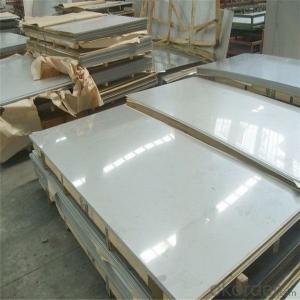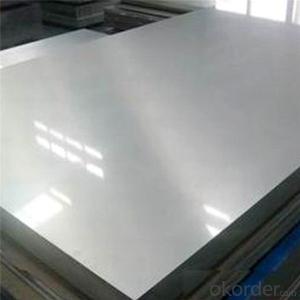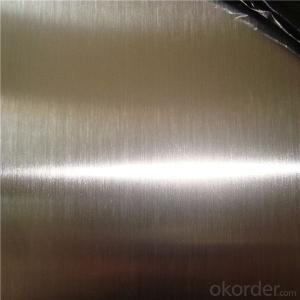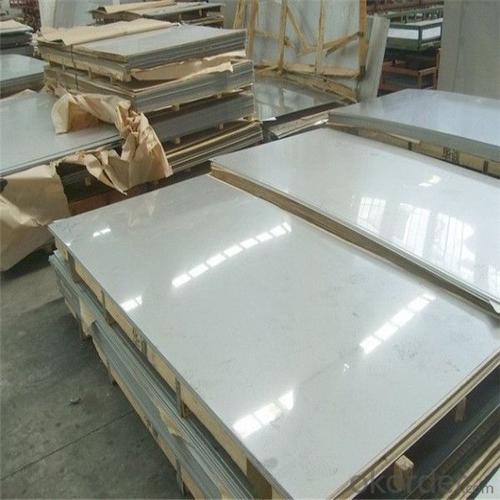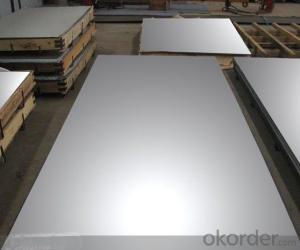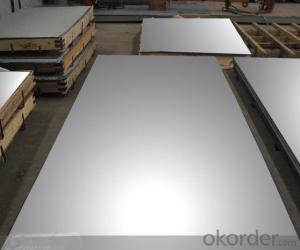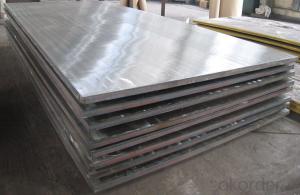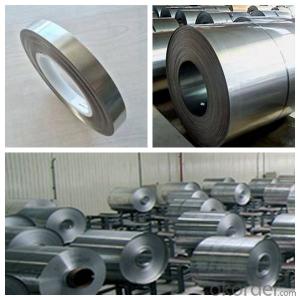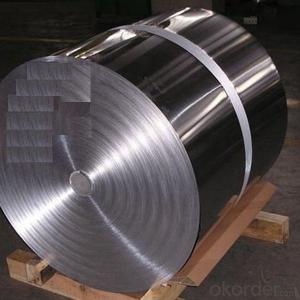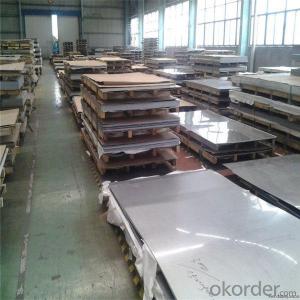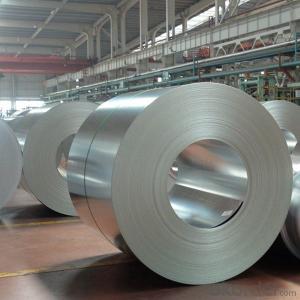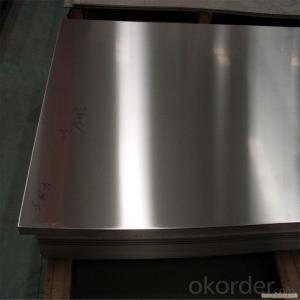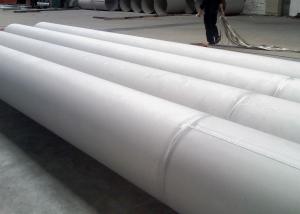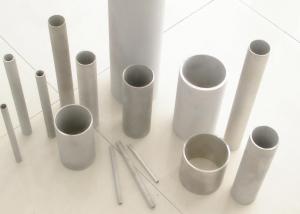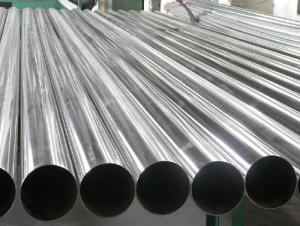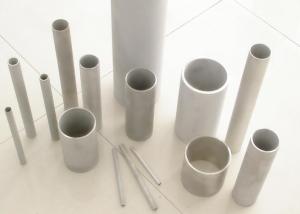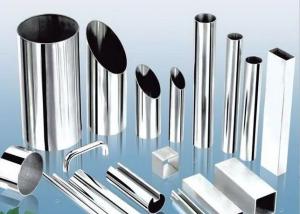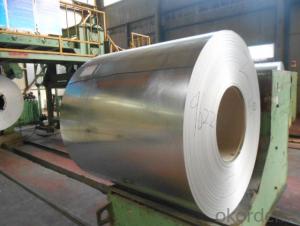304 Stainless Steel Sheet Direct sale in China
- Loading Port:
- Shanghai
- Payment Terms:
- TT OR LC
- Min Order Qty:
- 1 m.t.
- Supply Capability:
- 2000 m.t./month
OKorder Service Pledge
OKorder Financial Service
You Might Also Like
Specification
Product Description
1. 304 Stainless steel sheet direct detailed introduction :
Description | 304 stainless steel sheet direct. |
Material | 201,202,304,304L,309S,310S,316,316L,316Ti,317L,321,347H,409,409L,410,410S,420,430,etc. |
Thickness | From 0.3mm to 100mm |
Width | 1000mm,1219mm,1250mm,1500mm,1800mm,2200mm or be cut as your requirement |
Length | 2000mm,2438mm,2500mm,6000mm,6096mm or be cut as your requirement |
Standard | ASME, ASTM, EN ,BS,GB,DIN, JIS etc |
Application | Steel sheet applies to construction field, ships building industry, petroleum & chemical industries, war and electricity industries, food processing and medical industry, boiler heat exchanger, machinery and hardware fields. |
Packaging | Standard export sea-worthy packing |
Delivery time | 10-30 days |
Quality | No.1 |
Productivity | 500 tons/mouth |
Note | Our company has cooperative relation between the domestic agents. Stainless steel sheet can be made according to the customers requirements. Fasten delivery. Quality assured. |
Contacts | If you have any question,please feel free contact me. |
Detailed Images
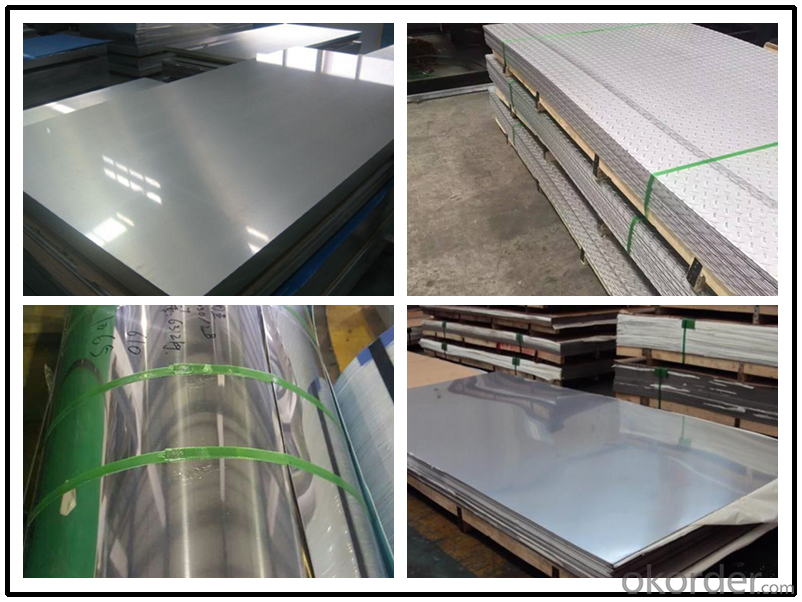
Packaging & Shipping
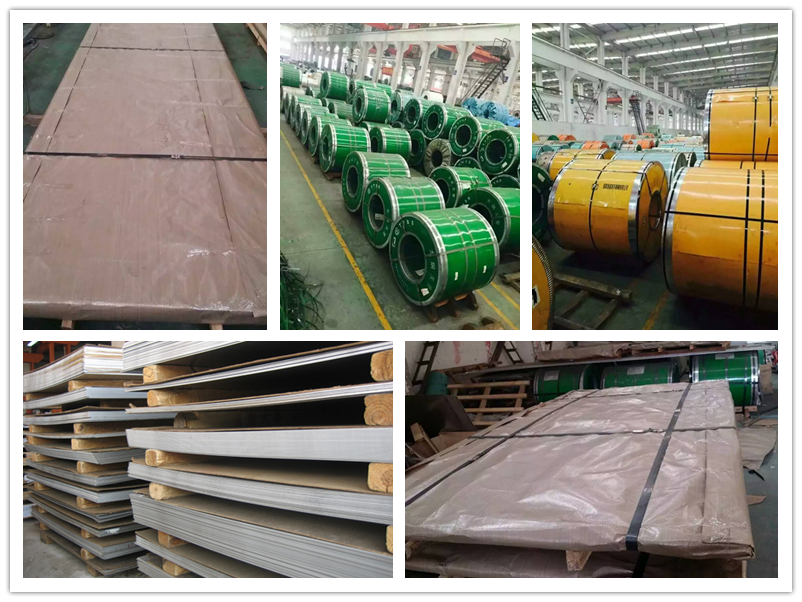
Application
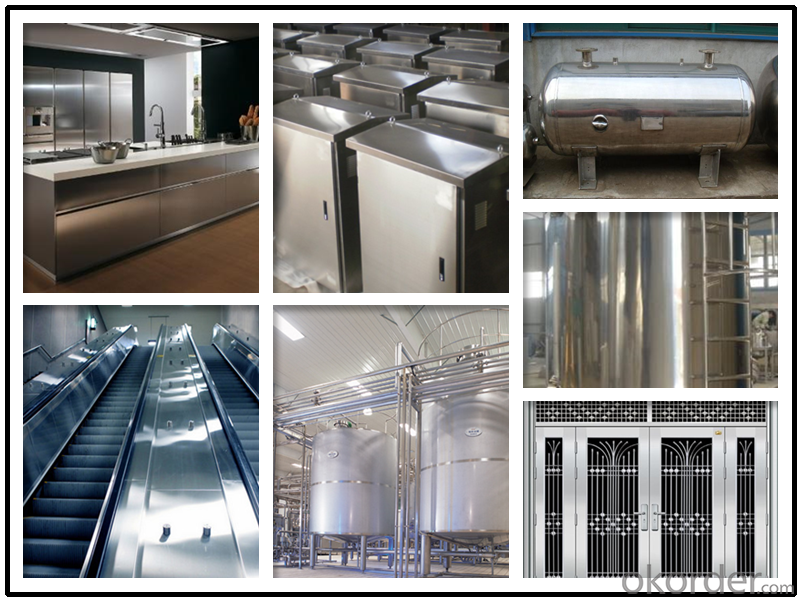
- Q: Are stainless steel sheets suitable for food processing or medical applications?
- Yes, stainless steel sheets are highly suitable for food processing and medical applications. Stainless steel is a popular choice in these industries due to its numerous beneficial properties. Firstly, stainless steel is resistant to corrosion, making it ideal for environments where hygiene and cleanliness are of utmost importance, such as food processing plants and medical facilities. Secondly, stainless steel is a non-porous material, meaning it does not absorb or retain bacteria, germs, or odors. This makes it easy to clean and maintain high levels of sanitation, crucial in food processing and medical settings where contamination must be minimized. Additionally, stainless steel has excellent strength and durability, allowing it to withstand harsh conditions, heavy use, and frequent cleaning without deteriorating. This makes stainless steel sheets a reliable and long-lasting choice for these demanding applications. Furthermore, stainless steel is non-reactive with food and many medical substances, ensuring that it does not leach any harmful chemicals or contaminants into the products being processed or the patients being treated. This is crucial for maintaining the safety and integrity of both food and medical materials. In conclusion, stainless steel sheets are highly suitable for food processing and medical applications due to their corrosion resistance, non-porous nature, strength, durability, and non-reactive properties. Choosing stainless steel ensures the highest standards of hygiene, cleanliness, and safety in these industries.
- Q: What does "80 wire" stainless steel plate mean? How much more expensive than the average stainless steel plate?
- It's 0.08mm stainless steel!! It's so thin. It's expensive. A kilo is at least 10 yuan!!
- Q: How do I prevent galvanic corrosion on stainless steel sheets?
- To prevent galvanic corrosion on stainless steel sheets, you can consider a few measures. Firstly, ensure that you use compatible metals when in contact with stainless steel to avoid creating a galvanic couple. Additionally, using insulation or separating materials, such as plastic or rubber gaskets, between dissimilar metals can help prevent galvanic corrosion. Regular cleaning and maintenance of stainless steel surfaces can also mitigate the risk of corrosion. Lastly, applying protective coatings or using corrosion inhibitors can provide an extra layer of defense against galvanic corrosion on stainless steel sheets.
- Q: Are stainless steel sheets available in different finishes?
- Yes, stainless steel sheets are available in different finishes.
- Q: How do I select the appropriate thickness for stainless steel sheets?
- To select the appropriate thickness for stainless steel sheets, you need to consider factors such as the application, desired durability, strength requirements, and cost. Thicker sheets are generally more durable and offer higher strength, but they may also be more expensive. It is advisable to consult with a stainless steel supplier or industry expert who can assess your specific needs and provide guidance on the most suitable thickness for your project.
- Q: Can stainless steel sheets be used for hygienic applications?
- Yes, stainless steel sheets can be used for hygienic applications. Stainless steel is known for its excellent hygiene properties due to its non-porous surface, which makes it resistant to bacteria, mold, and other microorganisms. It is also easy to clean and maintain, making it suitable for applications where cleanliness and hygiene are crucial, such as in the food and beverage industry, healthcare facilities, and pharmaceutical manufacturing. Additionally, stainless steel is highly durable, corrosion-resistant, and can withstand high temperatures, making it an ideal material for hygienic applications.
- Q: How do you remove fingerprints from brushed stainless steel sheets?
- These simple steps can be followed to remove fingerprints from brushed stainless steel sheets: 1. Gather the necessary cleaning supplies, including a microfiber cloth, mild dish soap, warm water, and either a stainless steel cleaner or vinegar. 2. Dampen the microfiber cloth with warm water, ensuring that it is slightly damp but not soaking wet. 3. Carefully wipe the stainless steel surface in the direction of the grain, always following the grain to prevent scratches or streaks. 4. If the fingerprints persist, add a small amount of mild dish soap to the damp cloth and continue wiping the surface. Rinse the cloth thoroughly after applying the soap. 5. If the fingerprints are still visible, utilize a stainless steel cleaner specifically designed for brushed surfaces. Apply a small amount of the cleaner onto the microfiber cloth and wipe the surface in the direction of the grain. Adhere to the manufacturer's instructions for the particular cleaner being used. 6. As an alternative, employ white vinegar as a natural cleaning solution. Dampen a cloth with vinegar and gently wipe the surface in the direction of the grain. Vinegar is effective in removing fingerprints and restoring shine. 7. After successfully removing the fingerprints, use a dry microfiber cloth to gently buff the surface. This will eliminate any remaining streaks and provide the stainless steel with a polished finish. Always test any cleaning solution on a small, inconspicuous area of the stainless steel sheet before applying it to the entire surface. Avoid using abrasive materials or cleaners containing chlorine or bleach, as they can harm the brushed finish of the stainless steel.
- Q: How do you prevent chloride-induced corrosion in stainless steel sheets?
- To prevent chloride-induced corrosion in stainless steel sheets, there are several measures that can be taken: 1. Material selection: Choosing the right grade of stainless steel that is resistant to chloride corrosion is crucial. Grades such as 316 or 317 are particularly effective in resisting chloride attack. 2. Surface treatment: Applying a passivation treatment to the stainless steel sheets can help enhance their resistance to chloride-induced corrosion. Passivation removes any surface iron contamination that may have occurred during fabrication, restoring the protective oxide layer. 3. Proper cleaning: Regular cleaning of the stainless steel sheets is essential to remove any chloride-containing contaminants that may have built up on the surface. Chloride ions can accumulate from saltwater, cleaning products, or other sources, so it is important to maintain a clean surface. 4. Avoid contact with chloride-containing substances: Minimizing exposure to chloride-containing substances can greatly reduce the risk of corrosion. This includes avoiding direct contact with saltwater, chloride-based cleaning agents, and chloride-rich environments such as swimming pools or coastal areas. 5. Design considerations: In environments where chloride exposure is expected, proper design considerations can help prevent corrosion. This may involve using protective coatings, minimizing crevices or gaps where chlorides can accumulate, and ensuring proper drainage to avoid stagnant conditions. 6. Regular maintenance: Regular inspections and maintenance of the stainless steel sheets can help identify and address any potential corrosion issues before they become severe. This may include repairing any surface damage, reapplying passivation treatments if necessary, and maintaining a clean surface. By following these preventive measures, the risk of chloride-induced corrosion in stainless steel sheets can be significantly reduced, ensuring their long-term durability and performance.
- Q: Can stainless steel sheets be used for medical instruments?
- Yes, stainless steel sheets can be used for medical instruments. Stainless steel is a popular choice for medical instruments due to its excellent corrosion resistance, durability, and ease of sterilization. It is non-reactive, which means it does not leach any harmful substances into the body during medical procedures. Stainless steel sheets are used to manufacture various medical instruments such as surgical tools, implants, dental instruments, and diagnostic equipment. The smooth surface of stainless steel sheets also makes them easy to clean and maintain, which is crucial for maintaining sterility in medical settings. Overall, stainless steel sheets are a reliable and widely used material for manufacturing medical instruments.
- Q: Are stainless steel sheets good for industrial exhaust systems?
- Yes, stainless steel sheets are an excellent choice for industrial exhaust systems. They offer high resistance to corrosion, extreme temperatures, and chemicals typically found in exhaust gases. Additionally, stainless steel sheets have excellent durability and strength, making them suitable for heavy-duty industrial applications.
Send your message to us
304 Stainless Steel Sheet Direct sale in China
- Loading Port:
- Shanghai
- Payment Terms:
- TT OR LC
- Min Order Qty:
- 1 m.t.
- Supply Capability:
- 2000 m.t./month
OKorder Service Pledge
OKorder Financial Service
Similar products
Hot products
Hot Searches
Related keywords
